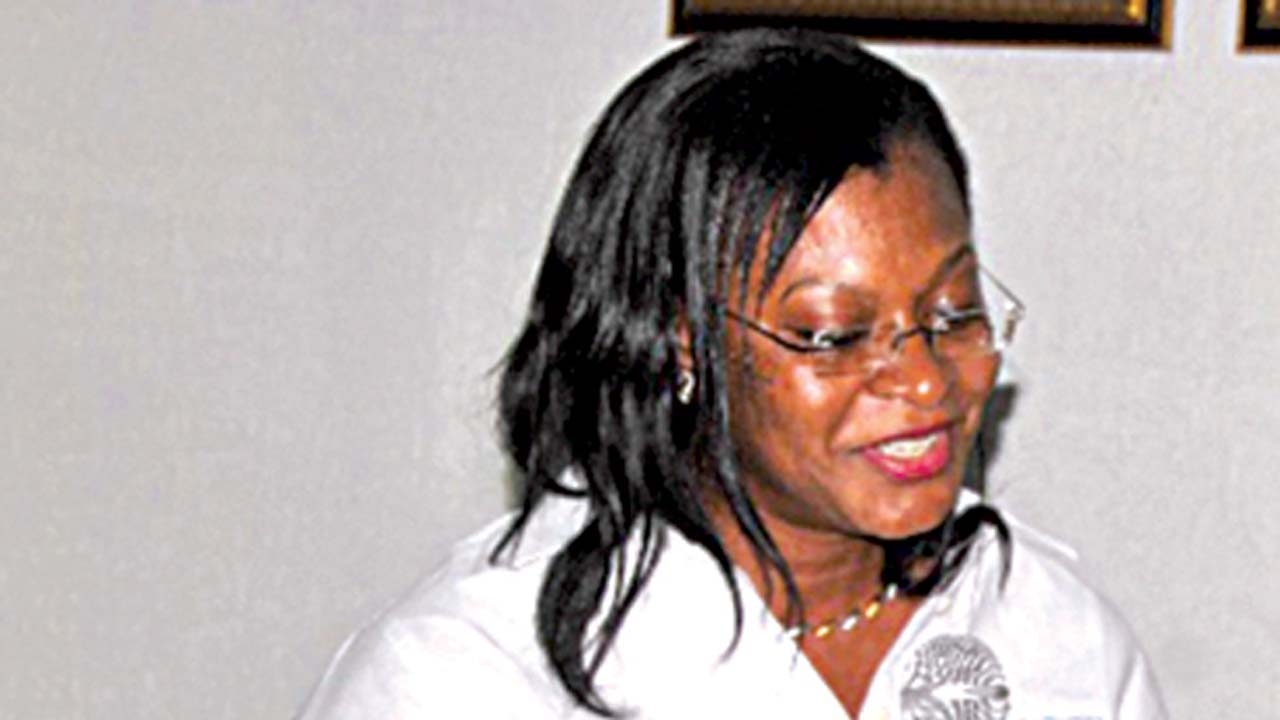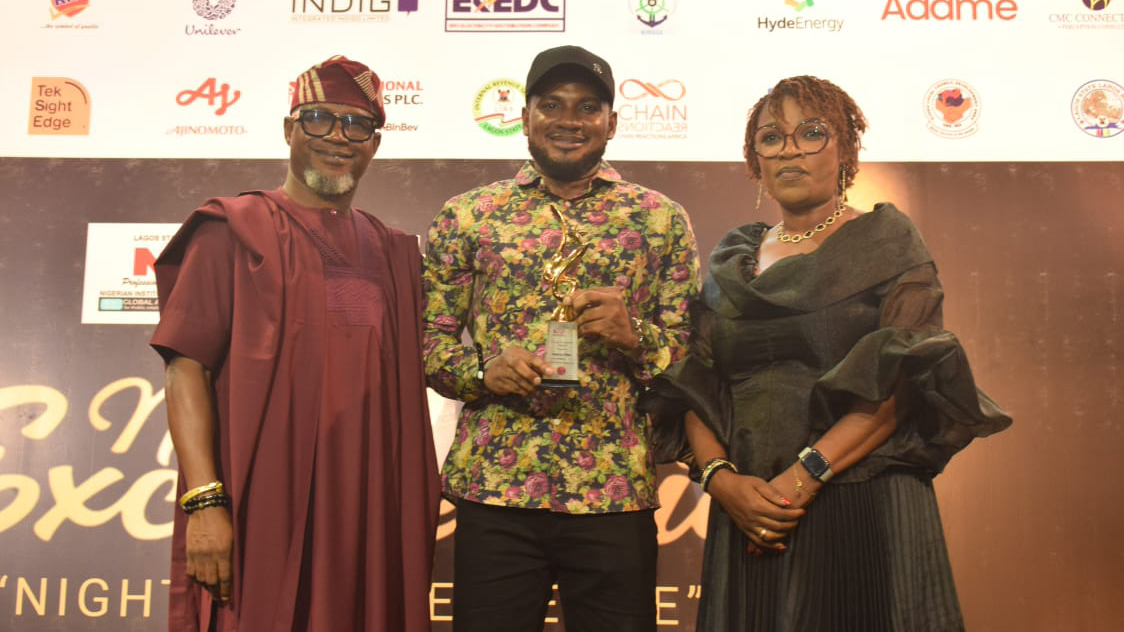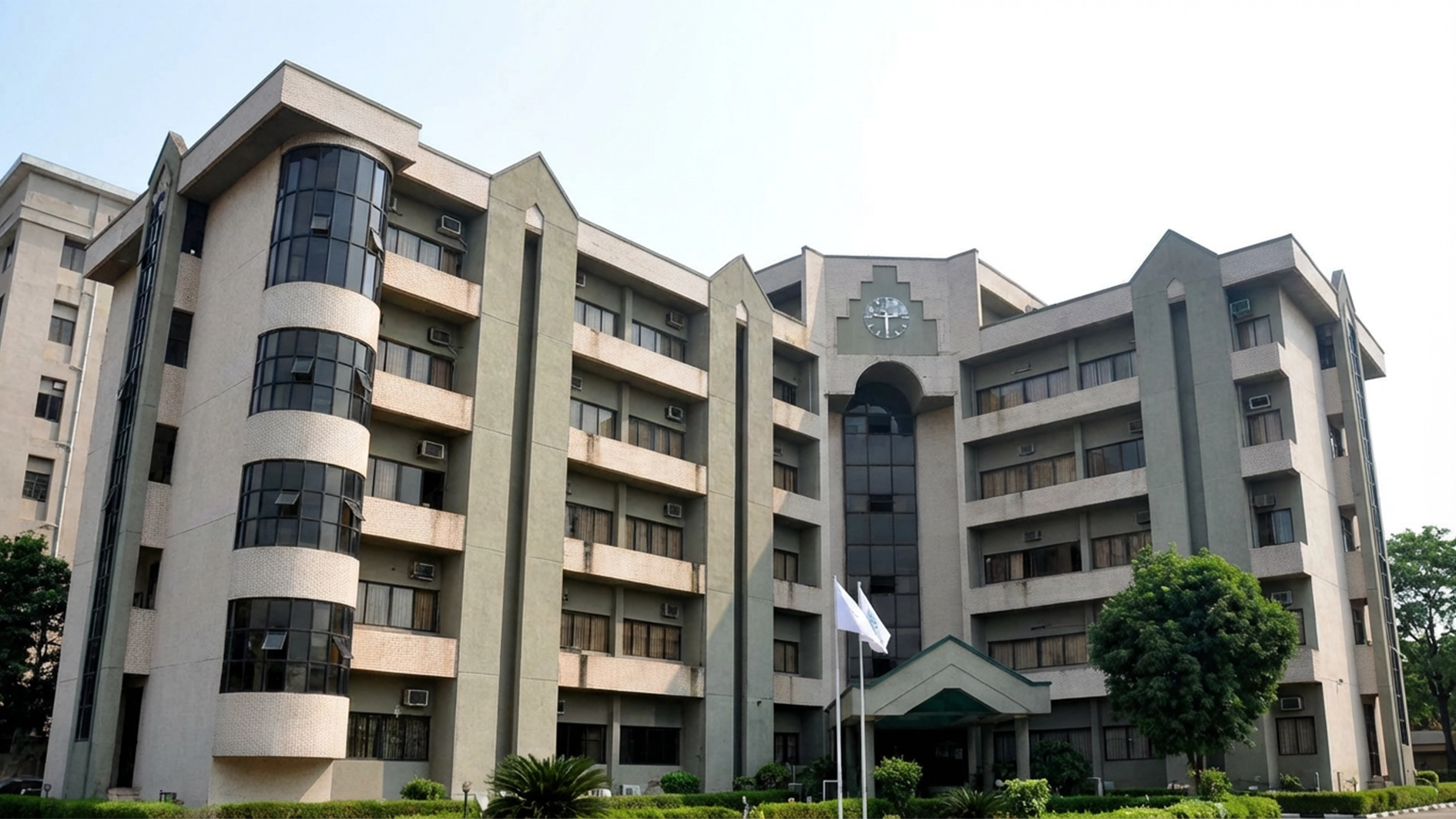
Millions of children in developing countries, including Nigeria with untreated clefts and palate live in isolation, but more importantly, have difficulty eating, breathing and speaking even though that cleft repair surgery is simple, and the transformation is immediate. In this interview with BERTRAM NWANNEKANMA, the Programme Director, Smile Train West/Central Africa, Mrs. Nkeiruka Obi, throws more light on the activities of Smile Train, an international children’s charity, which provides training, funding, and resources to empower local doctors in developing countries to provide 100 per cent -free cleft repair surgery and comprehensive cleft care in their own communities. Excerpts
How would you assess the activities of the Smile Train in Nigeria and West Africa since you joined them?
Smile Train System architecture anchors on four pillars, namely; Medical, Technology, Donors and Programmes, which revolves around financial help to poor patients who cannot afford the surgery and training of medical professionals to upgrade skills. What makes us unique is the fact that all of the surgeries we fund are performed by local doctors in local hospitals through free training, equipment and financial grants. We are helping communities become self-sufficient.
Small Train has been in Nigeria for 10 years. Since I joined in 2011, we have been able to grow the programme by over 400 per cent by simply using the “teach a man to fish” model, which has enhanced the sustainability of the program for longer term. We empower the local medical professionals to provide free safe and high quality comprehensive cleft care to as many patients in their own local communities all year round.
We have also created over 25,000 smiles in the region. I can tell you that the impact has gone beyond creating simple smiles. It is phenomenal and revolutionary.
What were some of the challenges you encountered and how were you able to handle them?
The West and Central Africa region is a diverse multicultural territory with an estimated 390 million population. There is a yearly cleft birth of 12,000 in 22 highly segmented countries of three different major international languages, viz, English, French and Portuguese. Travelling is prohibitively expensive due to the poor transportation system. We had to deal with insecurity, terrorism and unstable political climate with the attendant adverse effects on the people and governance.
In Nigeria, we keep experiencing incessant strike actions by medical professionals. And as in several areas of health care, the human resources and facilities available for the provision of comprehensive multidisciplinary care of patients with cleft lip and palate deformity on the continent are very limited.
Initially, it was insufficient cleft surgeons and care practitioners in the Francophone, Central African and some English speaking West African countries like Liberia, Sierra Leone and The Gambia. So my first task was to identify surgeons in these countries who are interested in cleft care and organize trainings for them so as to re-inforce the scientific foundations of cleft surgery and provide them hands-on training in surgical techniques. There has been significant progress in this area.
Then, the challenge of infrastructure and equipment. Most hospitals have very poorly equipped Operating Theatre. And our number one priority in cleft care is ensuring the safety of the patient. Smile Train had provided partners with Equipment such as Anesthesia machines, Pulse Oximetres and Cleft sets/instruments. This in no small measure has helped in improving the quality and safety of surgeries and care of our cleft patients. Worthy of mention is the Smile Train Global Oximetry project which has been of tremendous value. These pulse Oximetres are simply what I call “Life Savers”. Not only are they crucial in monitoring the oxygen saturation of the patient who is under the administration of anesthesia intra-operatively or post-op operatively, they are portal, durable and come with long lasting battery life, which allows it to work without direct electricity. This is a plus considering the challenge of epileptic electricity/power supply in the region.
We also have issue of malnutrition and underweight babies. Many of the children come from challenging environments including IDP camps and require nutritional rehab before surgery can be performed.
As you well know, cleft deformity comes with a lot of psychosocial problems. Many cleft children suffer discrimination and their family is traumatized. Those who manage to reach adulthood are often banished to a life of isolation. We still have a huge back log of adult cleft patients in the region. So lack of awareness is another challenge. The need to educate our people that cleft has no spiritual connotation cannot be over-emphasized. As was the case with twins before the great Mary Slessor, our people regard children born with Cleft Lip or Palate as evil occasioned by witchcraft or punishment from God. This is why the support of the media is very important to help us propagate the message of hope and the availability of this service to our people. No cleft child should be left to suffer any extra day. Smile Train is here to help.
How would you compare the case of cleft lip deformity in children among West Africa, Latin America and Asia?
Cleft deformity is a major problem in developing countries where there are millions of children suffering with unrepaired clefts. We know from reviewing the World Health Organization data that every year more than 170,000 children are born with cleft lip or palate in the developing world. It’s a common birth defect. In fact, globally one in every 700 children are born with it. One in 1200 children estimated cleft incidence are of Africa descent. 19,000 cleft children are born every year in Africa out of which 12,000 in West Africa and 6,000 in Nigeria alone. In my opinion, these figures could be underrepresented because they are based on registered hospital birth records. How about babies that were delivered at home or at the farm? Cleft babies are usually born to parents of low socio-economic status. Many in the rural areas, with poor access to care. Sadly, the problem is enormous and not a priority of most governments. This is why the support of Smile Train is very commendable.
Medically or scientifically, is there a way this deformity can be detected before the birth of such children in order to tackle it immediately after birth?
Yes, it is possible to detect cleft deformity in a child before birth through the use of ultrasound scan. A cleft is a harmful condition though not life threatening in which the roof of the mouth and/or top lip does not close properly. It occurs due to errors in the growth process when the different parts of the face are formed in the womb. Normal lip development occurs between 4-6 weeks of gestation while the palate develops between 6-12 weeks. The upper lip develops from the fusion of two different process. Failure of fusion results in cleft. So when the cleft is picked from the imaging, the family gets well informed and prepares ahead to what to expect and the available treatment services.
Why does Cleft occur?
It is still a medical mystery. Research is ongoing to better understand the condition. No one knows exactly the cause, but most experts agree that there is an interplay between many genetic (internal) as well as environmental or nutritional (external) factors. Some cleft are Isolated (sporadic) and others Syndromic (associated with genetic mutations). Parents who have family history of cleft have a high risk of giving birth to cleft children. It could be environmental: poor nutrition, wrong use of drugs, folic acid deficiency, infection, habits – smoking and high alcohol in-take, exposure to ionizing radiations and even parental age. The only solution today is a simple life transforming surgery that cost as little as $250 and takes as a little as 45minutes.
What has been the success rate of the surgeries in Nigeria and West Africa?
Typical like any other surgery, there are risks involved. At Smile Train, we have had very good success rate and near zero mortality rates. Our #1 priority is to ensure the safety of the patient, and it is the guiding force behind every Smile Train program and initiative, and our doctors and associated medical professionals abide by our strict standards to ensure patients receive the highest level of care possible. If a child has a cleft, he/she can live with that defect for the rest of his/her life. The only thing is that the child may not enjoy life to the fullest like a normal person. Thus, cleft, for us, is still an elective procedure not an emergency and the repair must be done under the safest condition.
We subject our partner hospitals to a rigorous credentialing process to ensure that the Safety and Quality Protocol are met. Then we sign a Treatment Partnership agreement that would factor in the anesthesia and surgical guidelines, timelines, safety and quality assurance checklist among others. If the partner does not meet and adhere to these requirements, they obviously cannot be on board the Smile Train. Our partners have attested to the fact that meeting Smile Train standards has immensely helped them to improve on their overall Healthcare service delivery systems even for non-cleft related cases and many have successful gone accreditation from through various bodies. In several sectors in Nigeria, we take certain things for granted.
How has it been partnering some of these institutions?
Like I mentioned earlier, we have had challenges with government institutions especially with bureaucracy and strike action of medical workers. Sometimes government hospitals are on strike 9months in one year. This definitely slows down our activity. But the dedication and commitment of our great team have enables us to overcome some of these challenges.
Why do you choose to train your doctor partners?
Again, we provide training to everyone involved in cleft care – Nurses, Surgeons and Anesthetists, Dentists and Orthodontists, Speech Therapists, Social workers, Community-based workers. This is primarily to build local capacity, improve skills and expertise in providing comprehensive cleft care and for long-term sustainability. We also want to position our surgeons in the global arena and network of world-class cleft surgeons. We sponsor and give scholarship for International Conferences.
It is important to note that since 1999, Smile Train has performed over 1,000,000 free, safe and high quality surgeries in more than 85 countries.
A recent study of Global Economic Impact of Smile Train Cleft surgery published in the World Journal of Surgery shows that for every $250 committed for one cleft repair surgery, as much as $50,000 is put back into the local economy as the recovered patient goes on to meaningfully contribute to their society and lead a full, productive life. The economic output of a single cleft surgery is as high as 200 times the input.
In some West Africa countries, there are cases of unreported infanticide of cleft kids. How is Smile Train strengthening the advocacy?
As typical of Africans, we have deeply entrenched cultural beliefs/superstition. Recall the killing of twins or multiple births before the Missionary Mary Slessor helped to de-mystified it. We can say it is almost similar with Clefts. It varies from region to region. In Yoruba culture – a pregnant woman is advised not to go out at night so that evil spirit do not possess the unborn baby, or she should attach a safety pin to her dress. Some would say child is born with cleft because the mother sighted the moon/solar power at a wrong time. Some attribute it to ancestral curse to his/her family and the pressure on parents often leads to divorce or the banishment of the family from the village. Most often, these children are branded as witches, and often driven into, forced to live as downcast and outcast. They are labeled evil spirit, seen as product of infidelity or past wayward activities on the part of their mother. Some believe is a punishment from God while on the other hand, others especially in the Northern Nigeria take it as a gift from God for alms begging on the streets to generate income to sustain the family. The list is endless but it does not rule out the fact that if the cleft is unrepaired, these children will live lives filled with shame and isolation, pain, and heartache. Those affected may not live past their first birthday, will have difficulty eating, speaking and breathing.
At Smile Train, we have strengthenour advocacy by initiating the Cleft Awareness Week. The aim is to have partners institutionalize a week in their calendar annually dedicated to creating awareness about the program in any targeted community.
When I visited many communities with many cultural sensitive issues and social hierarchy, I discovered that some still stigmatize cleft families, reject and even kill cleft babies even though the solution is right at their doorstep. The cleft week affords the community to take total ownership of the programme. During the cleft week, there are public enlightenment activities aimed at educating the populace and correcting the wrong perception of cleft. Cleft is not a curse or a bad omen. Cleft patients are not witches or demons and any evil spirit and should not be stigmatized. We have Health Talks on all available media platforms – Radio, Television and of course Social Media. This is to show that cleft can be easily corrected and the person go on to live a meaningful life. This initiative has proven to be a catalyst for the program growth in the region.
We also have another advocacy initiative called First Lady Initiative. We try to put the face of the mother to the problem. Usually when a woman gives birth to a cleft child, she is all alone and abandoned. We have engaged Community Leaders/Influencers to support the program and advocate for the care of the cleft child. They are very important to the success of our programme. And we have received tremendous support thus far. About 70 per cent of governors’ wives in Nigeria are Smile Train ambassadors. Recently, we have also signed on the Most Beautiful Girl in Nigeria, (MBGN), Universe Nigeria – Debbie Collis as one of our goodwill ambassadors. She has been active on a door todoor advocacy. The message remains: No child should be killed because of cleft. Please when you come across any person with cleft, kindly refer them to any Smile Train local partner hospital.
In Nigeria, we have partners and surgeons in all the 36 states and FCT Abuja. In West Africa and Central Africa we have our program running actively in these countries – Benin, Burkina Faso, Cameroun, Cape Verde, Central Africa Republic (CAR), Chad, Cote d’Ivoire, Equatorial Guinea, Gabon, The Gambia, Ghana, Guinea, Liberia, Mali, Mauritania, Niger, Nigeria, Republic of Congo, Senegal, Sierra Leone, Togo.
Where to do you see Cleft Care in the near future?
In addition to our dedication to safety and quality by offering a multitude of cleft education and training programs and resources, Smile Train is also committed to ensuring that the care we are providing is comprehensive. Many may not realize this, but children born with clefts need more than just one surgery, and our local medical professionals evaluate whether or not additional nutritional, speech, dental, orthodontic, and therapeutic care is needed.
Where these services are available, we do everything we can to provide our patients with access to them.
Our vision of a Cleft-free nation is to have a robust medical infrastructure and personnel easily and readily accessible to as many cleft patients especially young children who if early treated, can begin a great future without having to deal with all the stigma associated with cleft and go on to live and contribute productively as members of their communities and also to adults to give them a second chance to at life to smile.
Together, we can make sure every child in our region born with cleft is given an opportunity to live productive life.






